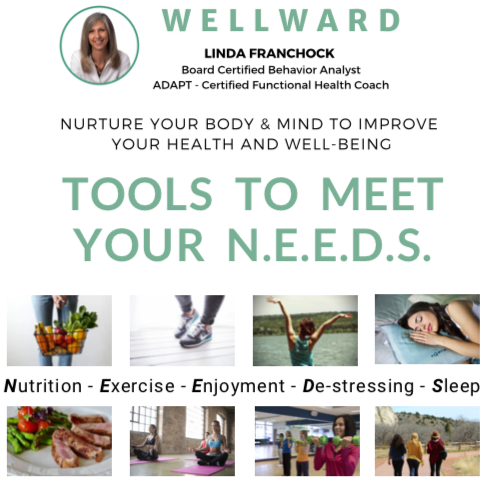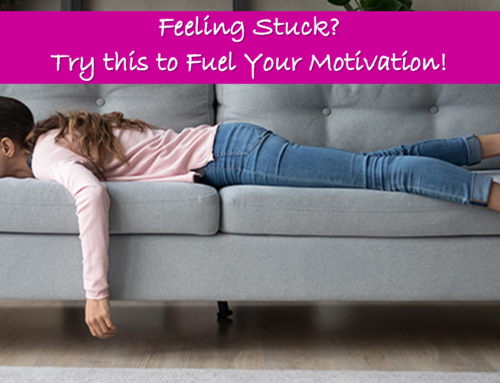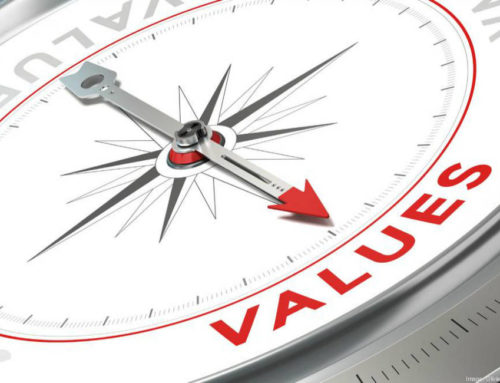I don’t know why it took me so long.
Over 35 years!
What I’ve observed looking back, and at this point in time, is that it’s taking many women just as long. And unfortunately, some women never arrive.
Attaining AND maintaining a balanced lifestyle is a challenge for most woman.
You’re pulled in many directions. And with each direction, you tend to put your N.E.E.D.S., Nutrition, Exercise, Enjoyment, De-stressing, and Sleep, at the bottom of the list of priorities. (More on N.E.E.D.S. in a bit).
Unfortunately, there’s overwhelming evidence that the long-term effects of delaying these critical N.E.E.D.S. can be devasting to your overall health and well-being.
How does this happen?
LIFE IS A CIRCUS RING WITH SOME SPECTACULAR MOMENTS
Moving on from your childhood environment and home, progress with an education, starting a new career, entering into marriage, buying a home, and becoming a mother can all occur within a 10 to 20-year span of a woman’s life. From age 20 through 40 many of these major milestones are occurring (and likely some additional ones like the death of a family member or a divorce.)
Many of these life changing experiences are happening simultaneously. Just one of these life events occurring alone is a major life stressor, let alone having more than one occur at a time.
Life rapidly escalates into a wild and crazy circus. A woman quickly becomes a ring leader, lion tamer AND professional juggler. Spectators watch as she demonstrates her feats of physical, mental and emotional strengths in the arena of her frenzied life.
But the daily frenzied activity and razzle-dazzle it takes to tame the wild, conquer the unknown, keep the monkeys off her back and manage the clowns takes its toll on her life.
But as they say, “The show must go on!”
Why?
YOUR CIRCUS IS THE GREATEST SHOW ON EARTH
As wild and crazy as your circus is, it’s your circus. And your passionate about it. So much so that you devote most of of your time and energy to the people, responsibilities and experiences of your circus regardless of the negative effects on your health and wellness.
Even when your intricate juggling act comes crashing down around you, the lions are pouncing, the monkeys are running wild, and you’re standing alone in the dark of the burned-out spot light. You are remarkably committed. Trying to work it all out. For everybody and everything you love in life.
YOU GOT THE MONKEYS OFF YOUR BACK, BUT THE CIRCUS IS STILL IN TOWN
If you’re like me, you can relate to the circus analogy.
Unfortunately, continually putting my N.E.E.D.S. last on the long list of to-dos’ put me on a road to a health and wellness catastrophe. It took several years to recover from the effects of burn-out and the physical impact it had on my body, emotions and spirit.
Here’s the scary truth about the tricks we use to run the circus, they don’t really work out for us in the long run.
Let’s look at some of the evidence.
RESEARCH REGARDING NUTRITION, EXERCISE, ENJOYMENT, DE-STRESSING, AND SLEEP
There is an overabundance of chronic health issues attributed to long-term, unresolved issues like stress, sleep deprivation, poor nutrition, lack of exercise and deprivation of enjoyment.
Research shows that abuse and neglect to these areas of your life can result in serious and many times chronic health issues.
NUTRIENT DENSE FOOD SOURCES
Nutrient dense food are whole foods that are unprocessed and unrefined. They are in their natural state as much as possible. These are fresh fruits and vegetables, unprocessed meats, non-industrial seed oils.
Research shows that a diet rich in nutrient dense whole foods supports weight loss, boosts energy, improves sleep, reduces inflammation, and can prevent and reverse a wide range of chronic diseases. It has beneficial effects on cardiovascular function, supports healthy immune function and bone health and improves gut health. Many modern-day diseases can be avoided with the simple introduction of sources of nutrient dense whole foods.
On the other hand, eating excessive quantities of foods loaded with industrial seed oils, gluten and refined sugar on a daily and cumulative basis puts you at risk of developing a variety of chronic diseases as listed earlier.
Minimizing the cumulative toxic load from foods such as; bread, pastries, muffins, crackers, cookies, cereals, soda, fruit juice, prepackaged and fast food containing artificial ingredients and chemicals is critical to your long-term health and well-being.
Unfortunately, 70% of the total calories Americans consume each day come from these categories leading to the overwhelming rises in chronic illness in our country.
Though it’s difficult to eat 100% of these foods all of the time, the benefits are overwhelmingly positive for incorporating them in your daily meals as much as possible.
If you’re eating mostly whole foods that are unprocessed and unrefined, keep it up! Stay strong with maintaining your healthy lifestyle!
If you predominately eat processed, prepackage and fast foods, consider the following:
- What small changes can you make to move you closer to eating more nutrient dense whole foods?
- What information could you access to help you learn more?
- What support would help you in the process?
If you don’t pay attention to what you eat consider the following:
- What would help you consider the benefits of nutrient dense whole foods for your life?
- What small steps would you be willing to try toward incorporating more nutrient rich foods in some part of your week?
- Who could support you in learning more about nutrient dense whole foods?
EXERCISE
Active living is key to optimal well-being. Regular exercise helps prevent many chronic diseases and health issues. The benefits of regular exercise include; reduced stress hormones, enhanced mood and outlook, improved self-confidence and increased connections with nature. It aids in the prevention of cognitive decline, boosts brain function and memory, helps to control addiction, increases productivity and creativity, and better physical and mental performance.
If you’re exercising 1 – 2 days per week, excellent! You’ve got a great start!
- If possible, what additional time would you like to devote to your current exercise routine?
- What other forms of exercise interest you?
If you not exercising at all consider the following:
- What’s holding you back from experiencing the benefits of exercise?
- What have you tried in the past that’s worked?
- What support would you find helpful?
If you’re over-exercising and not benefiting from your current program, consider the following:
- What are some benefits to scaling back your current program?
- What support do you need in determining a better plan?
ENJOYMENT
Play is still important for you as an adult. Play is defined as being something done for its own sake, not to achieve a goal. Something highly enjoyable, voluntary, and fun. Where you lose a sense of the passing of time.
Playfulness is associated with many positive behaviors including; learning, productivity, creativity, flexibility, optimism, empathy, and the capacity to handle stress. It encourages cooperation, promotes problem solving, and fosters a sense of community and belonging.
Play is all about perspective! If you play once per week or daily, fantastic! If not, consider the following:
- What play can you incorporate in your life at least once a week or a month?
- What play can you incorporate in your daily life?
- What easy, fun things could you consider as play?
If you never have time for play, I’m sorry you’re missing out.
- What opportunities do you have to add play to your life if you really explored your time?
- How could you begin incorporating just a few hours into your month?
- Is there a small step you could take toward adding in play?
The pleasure experiences you enjoy from your social connectedness and social system are supporting your health and well-being and can be included in the play category.
Social connections provide pleasurable experiences that are essential to your health. The experience of pleasure releases powerful hormones and chemicals in your body like endorphins and oxytocin that promote health and prevent disease.
Pleasure protects you against the harmful effects of stress, it strengthens and regulates the immune system, and it improves mood.
Having a positive social support system has been shown to extend lifespan and improve cardiovascular, endocrine, immune, and mental health. Of all the types of social support, emotional support is the most consistent predictor of health.
If you play once per week or daily, fantastic! You are reaping the benefits of play!
If your social lifestyle if fairly isolated, consider some ways to cultivate social connections and build relationships.
- What things do you enjoy doing where you could meet others?
- What have you had success with in the past to connect with people?
If you’re struggling with too many social connections, consider the following:
- What would you like to change?
- What would help make your social life more manageable?
- What social connections are most beneficial in your life?
DE-STRESSING
Positive stress, called eustress, is a type of good stress that’s crucial to have in your live. It keeps you energized, excited and motivated about life. You’d have a lack of meaning in your life without it. Anticipation of an upcoming vacation, a new job, wedding or just the anticipation of a roller coaster ride are some examples of eustress. Without eustress you would be bored, depressed and unmotivated to accomplished anything.
Negative stress called distress occurs when you perceived things as outside of your ability to cope. It can be short or long-term. It causes unpleasant feeling such as anxiety and decreases our ability to perform.
Research shows long-term negative stress increases the risk for serious and chronic conditions such as;
- heart disease
- diabetes
- hypothyroidism
- autoimmunity (triggers or worsens autoimmune diseases)
Additionally, it negatively impacts your cognitive function and mental health and harms the body’s ability to maintain homeostasis for optimal health, such as blood pressure and glucose for example. Negative stress depletes our metabolic reserve, diminishes our resilience, and leads to blunted cortisol response.
Unfortunately, a great diet, exercise plan, and supplements aren’t beneficial if stress is a serious, unresolved problem.
Stress management has a number of benefits. It improves mood and energy. It boosts immune function, promotes longevity, increases productivity and focus, reduces the risk of chronic disease, helps maintain a healthy body weight, and much more.
If you have positive stress management skills and minimal stress in your life, congratulations!
- What things you can do to ensure you maintain this balance?
If you’re dealing with stress and don’t have positive ways of managing it, it’s likely you are faced with very challenging days that could be adversely affecting your health.
- What simple changes could you incorporate in your life to minimize exposure to stress and its harmful effects?
- What stress management skills would you like to learn?
- What support could you seek to help with stress management?
Whether you’re currently in a job, enjoying retirement, changing careers, going to school, preforming volunteer work, and/or providing caregiving, consider the effects of stress on your life.
- Is stress negatively impacting your life?
- What small changes can you make to reduce the risk to your health and well-being?
- What support can you seek for the changes you want?
SLEEP
Sleep is an uncontested requirement for optimum health. Research suggests that 7 to 9 hours of sleep per night is required for the majority of people.
Sleep enhances memory and mental clarity, improves athletic performance, boosts mood and overall energy, improves immune function, and increases stress tolerance. It’s absolutely essential for basic maintenance and repair of the neurological, endocrine, immune, musculoskeletal and digestive systems.
Excessive sleepiness can have diverse and serious consequences. Reduced cognitive function can compromise judgement and performance, increase risks of motor vehicle incidents, home and work-related incidents, and make it difficult to gain or maintain employment. It can lead to abuse of caffeine, pills and energy drinks that have detrimental effects on your overall health.
If you’re regularly getting 7 – 9 hours of sleep each night, keep up your great sleep habits! If you’re not, consider the following:
- What’s keeping you from a good night’s sleep?
- What steps can you take to improve your sleep habits?
- What small changes could you make to start improving your sleep?
SUMMING UP LIFE UNDER THE BIG TOP
If you’re reaping the benefits of a healthy lifestyle that meets all of your N.E.E.D.S. AND provides you with a balancing act that has people standing spellbound with amazement, CONGRATULATIONS! I applaud you! Stay strong with maintaining your health and well-being!
If you’re cracking the whip to perform endless feats of strength and to reach new heights without first meeting your own NEEDS, you’re going to step right up to the “The Worse Show on Earth.”
The Pitchwoman in you knows you have been through a lot, you have accomplished a lot, and you have given a lot. She knows she needs to reflect on her N.E.E.D.S. Because she knows, when her own N.E.E.D.S. are met, HER circus IS “The GREATEST Show on Earth”!
Over to you…
As you reflect on your N.E.E.D.S., which stand out as the most balanced?
If you were to work on one area of your N.E.E.D.S., what area would you work on first?
What health or wellness conditions are you currently dealing with that could be helped by working on an area of your N.E.E.D.S.?
Wishing you Wellward! Linda

Sign up today to receive the “Tools to Meet Your N.E.E.D.S.” ebook, which contains Linda’s favorite products and practices for wellbeing.
You’ll also get notified about new resources and learning opportunities from Wellward.
Discover over 200 resources to help you reach optimal health and wellness. Explore links, apps, books, articles, podcasts, videos and more!





